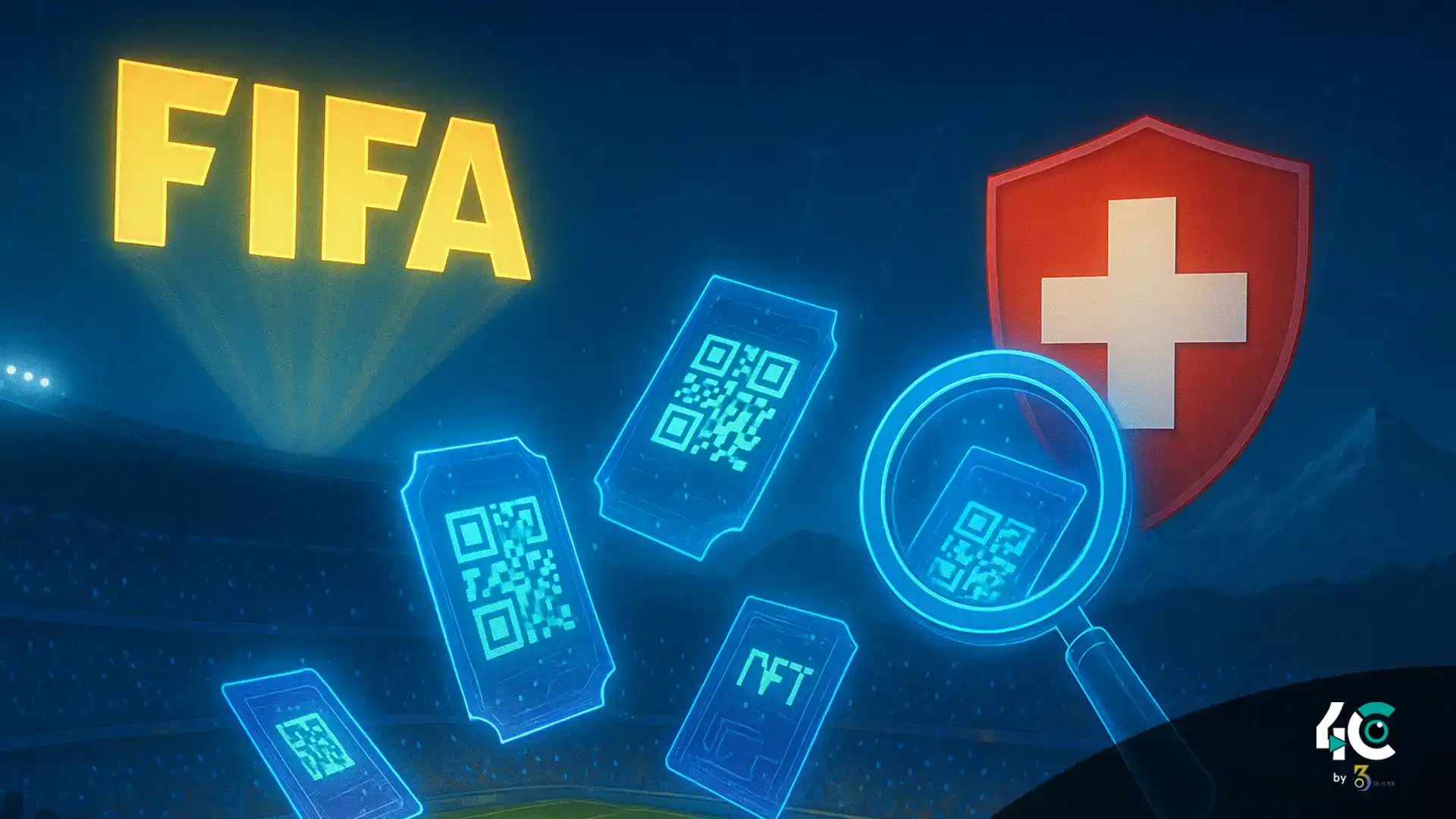FIFA’s “Right-to-Buy” Tokens Under Swiss Gambling Review
According to Bloomberg, Switzerland’s gambling regulator Gespa is investigating whether FIFA’s “Right-to-Buy” (RTB) tokens for the 2026 World Cup qualify as gambling-related products. No wrongdoing has been alleged.
The key question is whether the RTB tokens, which fans can buy, trade, or resell on FIFA’s NFT marketplace, are gambling-like or simply a conditional right to purchase tickets.
Manuel Richard, director at Gespa, stated:
“We have not received any complaints. We are collecting evidence to see if any action is needed.”
How FIFA’s RTB Tokens Work
FIFA’s RTB tokens are non-fungible tokens (NFTs) that give holders the chance to purchase match tickets at face value if specific conditions are met. For example, team-linked RTBs activate only if the selected team qualifies for the match.
- In 2024, FIFA experimented with RTBs for the Club World Cup final, offering 1,000 tokens.
- For the 2026 World Cup in the US, Canada, and Mexico, RTB token prices range from $299 to $999 depending on the teams. Popular teams like Argentina, Brazil, and England have higher-priced tokens, while lesser-known teams cost less.
The NFT marketplace, powered by Web3 partner Modex, allows fans to trade RTB tokens, creating a secondary market for ticket-access rights.
FIFA introduced RTBs to address extreme ticket demand, after the 2022 Qatar World Cup saw 23 million ticket requests for only 3.4 million available tickets.
Also Read : Jump Crypto Suggests Increasing Available Blocks on Solana to Enhance Performance
FIFA’s Broader NFT Strategy
Since 2022, FIFA has leveraged NFT technology for collectibles, ticket-access rights, and gaming. Key initiatives include:
- FIFA Collect – FIFA’s native NFT platform, originally launched on Algorand, allowing users to collect digital assets linked to football events.
- In Dec. 2023, FIFA and Modex issued 1,000 NFTs before the Club World Cup; 100 NFTs offered chances to win 2026 World Cup tickets. Remaining collectibles were minted on Polygon.
- In 2024, FIFA expanded into Web3 gaming with FIFA Rivals, developed with Mythical Games, enabling players to manage clubs, compete in matches, and trade NFT player cards on the Mythos blockchain.
Switching to Avalanche for More Capacity
In May 2025, FIFA migrated its NFT marketplace from Algorand to Avalanche to handle high traffic volumes during major events.
Francesco Abbate, CEO of Modex and FIFA Collect, noted that Avalanche’s EVM-compatible stack simplifies integration with mainstream wallets and DApps. Dedicated subnets now manage traffic surges efficiently.
FIFA, with over five billion global fans, can now execute NFT trading and ticket allocations smoothly, ensuring scalability for the 2026 World Cup.



























